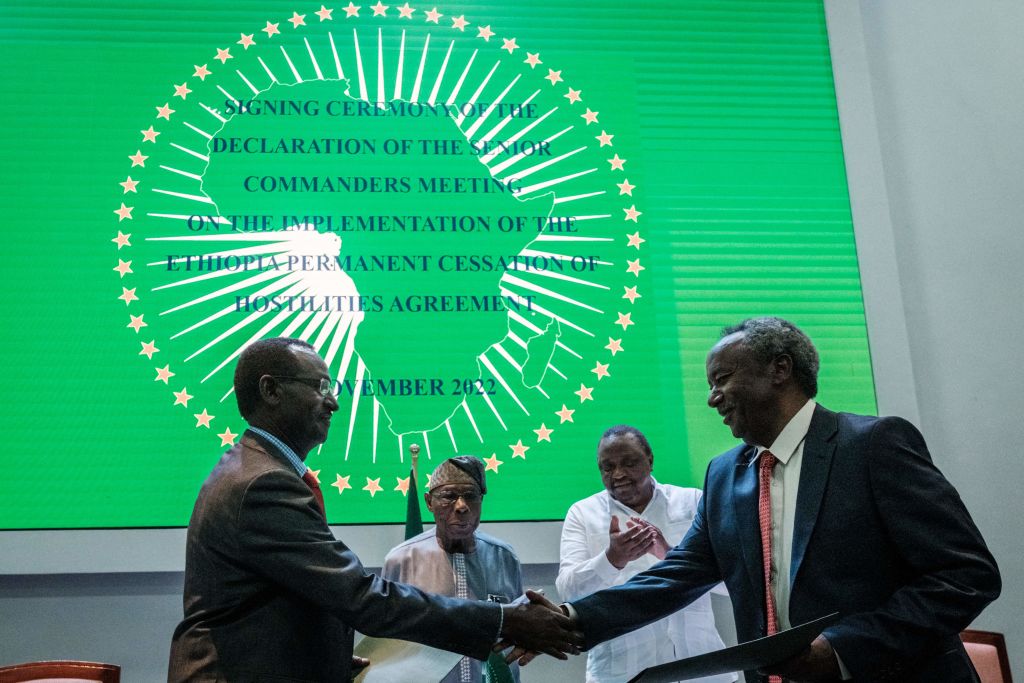ADF STAFF
With the signing of a truce in early November, the Ethiopian government and Tigrayan rebels ended their brutal conflict and showed the capability of the African Union to find an African solution to the chronic problem of armed disputes within its member states.
The role African Union (AU) officials and various African governments played in brokering a peace deal in Ethiopia’s 2-year-old conflict shows how a more active continental security system is emerging, according to researcher Alexander Clarkson.
“The recent efforts by African states and institutions to mediate the peace agreement in Ethiopia and contain the growing violence in eastern [Democratic Republic of the] Congo may well be a sign of the changes in power dynamics between African states and the world beyond the continent,” Clarkson wrote recently in World Politics Review.
Talks hosted by the AU in South Africa ended in early November with an agreement that restored Ethiopia’s control over Tigray and reopened the region to the world. The agreement was formally signed at a meeting in Kenya.
“This moment is not the end of the peace process,” former Nigerian President Olusegun Obasanjo said after the deal was struck. Implementing the deal remains critical to its success, he added.
That will be overseen by an AU panel helmed by Obasango along with other experts drawn from across Africa.
The AU is celebrating its victory in Ethiopia about 20 years after the Arusha Accords, its first success as an organization empowered to intercede in member states’ internal conflicts. The Arusha Accords ended internal fighting among Hutus and Tutsis in Burundi.
In the years since, the AU has helped resolve conflicts across the continent, from Comoros in the east, to Libya in the north, to Liberia and Sierra Leone in the west.
As with other AU successes, the Tigray resolution came not from military intervention but from talking. Communication has proved repeatedly to be one of the African solutions the AU seeks to resolve African problems, according to Dr. Silk Ugwu Ogbo, head of the School of Media and Communications at Nigeria’s Pan Atlantic University.
“That means that conflicting parties must be engaged to communicate the ‘African way’ and should continue to talk with each other until an understanding or compromise is reached and relationships are repaired and restored,” Ogbo wrote in the International Journal of African Society, Cultures and Traditions in 2017.
The “African way” of resolving conflicts can take the shape of songs, drums, dances and more, he added.
“What is vital is that Africa should not abandon its traditional ways of resolving conflicts through familiar and trusted communication channels,” Ogbo wrote.
Although Ogbo praised the AU’s approach to resolving the continent’s conflicts, critics have said that the AU has taken too long to end the hostilities in Tigray.
As it enters its next decade, the AU still has work to do to assert its mandate effectively, according to Oumar Ba, Senegal-born professor of government at Cornell University in the United States.
“The war in the AU’s host state of Ethiopia shows that, despite its broad mandate and the African Peace and Security Architecture, it is still struggling to become an effective organization with a meaningful imprint on conflict resolutions in the continent,” Ba said in comments published by the university.

